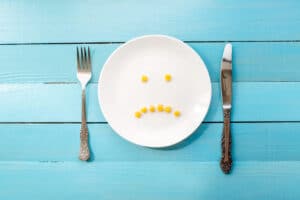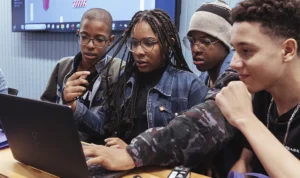Movement supported by iFood benefited thousands of people across the country
One in four people in Brazil has less food on the table than they need for the day, according to a research carried out by Datafolha in March 2022. And more than half (55%) of Brazilians are affected by some degree of food insecurity, according to last survey carried out by the Brazilian Research Network on Food Sovereignty and Security (Rede Penssan), at the end of 2020.
“We are going through a serious humanitarian crisis, and there is a lack of public policies for food security in the country. An alternative to reducing hunger in Brazil today is the mobilization of the private sector for the redistribution of food”, comments Alcione Silva, founder and CEO of ConnectingFood, a social impact business that takes surplus food from industry, retail, distributors and restaurants to social organizations and food banks to be donated.
This was how more than 1,800 tons of food were donated across the country by All at the Table movement. Launched in the last quarter of 2021, this initiative brings together iFood, Connecting Food, Bauducco, Carrefour Brasil, Danone, Camil, DPA, M. Dias Branco, Nestlé and Lopes Supermercados.
“We want to involve more industries and retailers in this initiative, and we are open to welcoming new partners to further increase the positive impact of this movement”, says João Barreto, Sustainability Director at iFood.
The food redistribution formula is simple: identify in companies the amount of surplus food — which has lost its commercial value but is suitable for human consumption —, implement a donation process and take it to civil society organizations or food banks. food so that it can be donated safely across the country.
What can be donated?
In the industry, for example, donations come from products that are usually left over when there is a failure in production or packaging, when the order is canceled by the customer or when food is close to its expiration date and there is no more time to reach it. retail. “These foods are generally sent to food banks, which redistribute them”, explains Alcione.
In retail, fruits and vegetables are changed daily, so imperfect or overripe foods are discarded, even if they are fit for consumption. What will not be used, therefore, can be donated. “Fruits and vegetables represent 90% of wasted food”, comments Alcione. “In retail, donations tend to be made daily, to reach people faster.”
Any company can donate surplus food, as long as it is not expired or spoiled. If before there was no law authorizing or regulating donations, since April 2020 the Law 14,016 brings the rules for this and exempts food donors from civil or legal liability for the donation. “It is possible to donate in a safe, controlled way, following all well-established health and legal standards”, says Alcione.
Want to know more or participate in Todos à Mesa? Access the site of the movement!
Read more:
- What is a culture of donation and why is it gaining strength in Brazil
- iFood invests in urban gardens to combat food insecurity
- How restaurants can donate surplus meals and food
- Why unity and technology are crucial to fighting hunger
- Fighting hunger: how to donate with just one click


